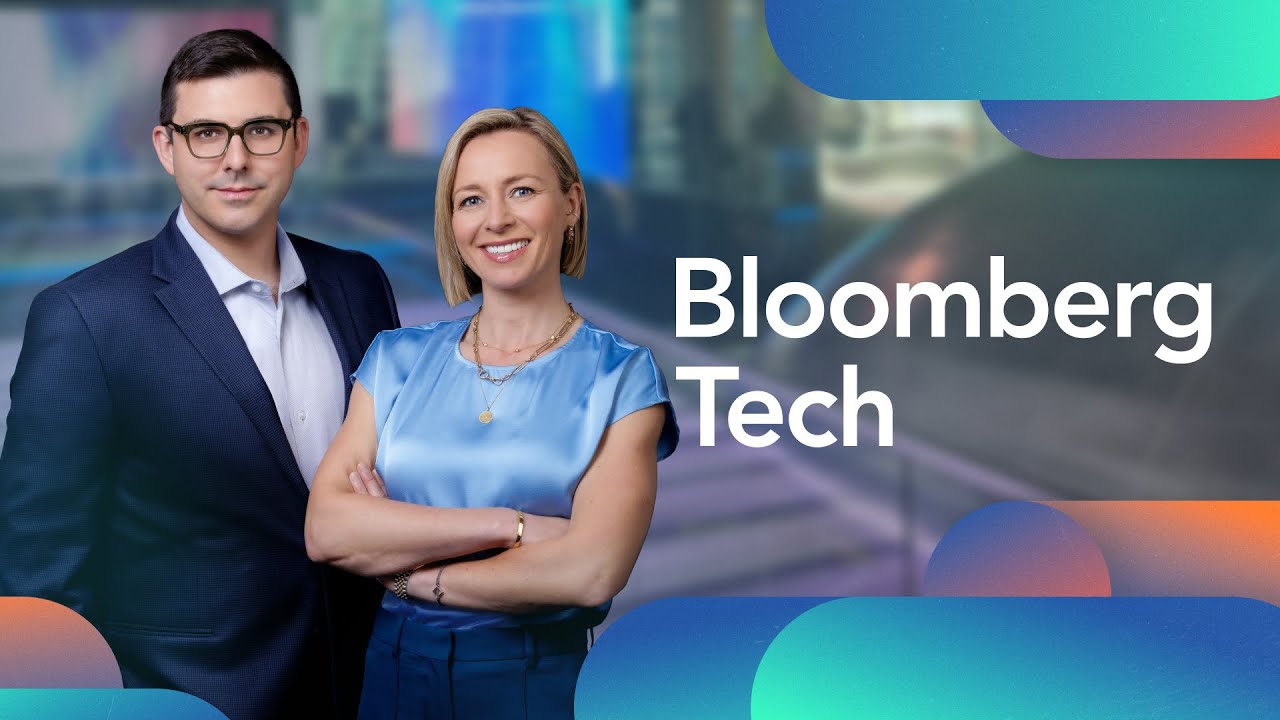Microsoft has secured a 27% stake in OpenAI, gaining control over its technology until 2030 and resolving uncertainties around OpenAI’s transition to a for-profit model, while Tesla, Adobe, Amazon, and fintech company Sophia each reveal strategic moves involving leadership, AI integration, job cuts, and growth initiatives. Additionally, American startup Substrate aims to revolutionize semiconductor manufacturing with a $1 billion valuation and government support to restore U.S. technological leadership by 2028.
The Bloomberg Tech segment opens with major news about Microsoft finalizing a new agreement with OpenAI, acquiring a 27% ownership stake in the AI startup valued at approximately $135 billion. This deal provides clarity and certainty for investors regarding the future relationship between the two companies. A significant aspect of the agreement is that Microsoft will have control over OpenAI’s technology until 2030, including when OpenAI achieves Artificial General Intelligence (AGI), an AI capable of human-like thinking. Additionally, funds will be allocated to the nonprofit OpenAI Foundation, resolving previous uncertainties about OpenAI’s transition into a for-profit entity.
The discussion then shifts to Tesla, where Robyn Denholm, Chair of Tesla’s Board, addresses the ongoing efforts to convince shareholders to approve Elon Musk’s $1 trillion pay package. Denholm emphasizes that the package is performance-based, with Musk earning compensation only upon meeting ambitious milestones. The package also grants Musk increased voting influence, which has raised concerns among some investors about dilution and the sheer size of the potential payout. Denholm reassures that there is no current succession plan or alternative leader lined up, underscoring the board’s confidence in Musk’s leadership for the next decade despite the risks associated with a possible “no” vote.
Adobe’s CEO discusses the company’s AI ambitions at their annual user conference, highlighting the shift from AI training investments to inference and usage, which will drive long-term value. Adobe is integrating generative AI into its flagship creativity and productivity tools, including an updated image model and AI assistant Adobe Express. Despite the stock price not fully reflecting Adobe’s innovation and profitability, the CEO expresses confidence in the company’s growth prospects and ongoing stock buybacks, signaling strong belief in Adobe’s AI-driven future.
The segment also covers Amazon’s announcement of 14,000 corporate job cuts, attributed partly to AI-driven efficiencies, although the company denies AI as the primary cause. This follows previous rounds of layoffs and signals ongoing efforts to streamline operations amid economic pressures. Meanwhile, fintech company Sophia reports strong earnings and growth, driven by innovative products like Sophia Pay and upcoming crypto-related services. Sophia’s CEO highlights the company’s focus on serving affluent, younger customers and expanding its workforce, particularly in engineering, despite broader economic uncertainties.
Finally, the show features an interview with James Proud, CEO of the American startup Substrate, which has emerged with a $1 billion valuation and a revolutionary lithography tool using particle acceleration and X-ray wavelengths. Proud emphasizes the company’s mission to restore U.S. leadership in semiconductor manufacturing and national security by building domestic fabs and reducing reliance on foreign suppliers like ASML and TSMC. Substrate aims to have a production-ready facility by 2028, supported by strong backing from the current U.S. administration, reflecting a broader push for technological sovereignty in critical industries.
